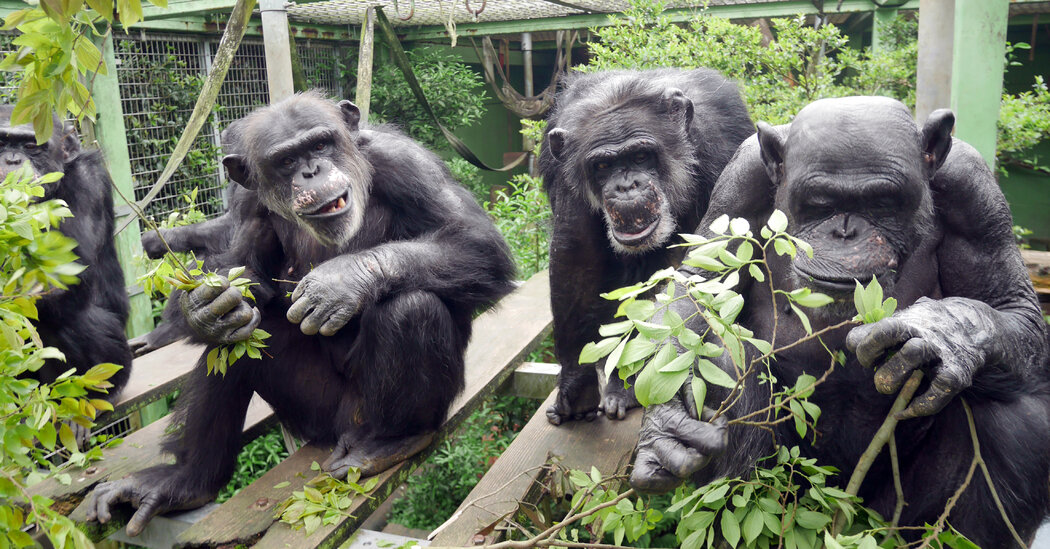Ena Onishi, a doctoral scholar at Kyoto College, has spent over 600 hours observing chimpanzees urinating. Nonetheless, she has a great motive for all this peeping. She is a part of a workforce of researchers who just lately found that primates are likely to rattle once they see close by chimpanzees doing the identical.
c published study Monday within the journal Present Biology, Ms. Onishi and her colleagues described this phenomenon, which they name infectious urination. Their discovering raises questions concerning the function that peeing could play within the social lives of chimpanzees and different primates.
Ms Onishi first seen contagious urination in 2019 whereas observing chimpanzees on the Kumamoto Recreation Reserve in Kyoto, Japan. “I used to be observing a gaggle of chimpanzees in captivity for a special analysis challenge and seen that they tended to urinate on the identical time,” Ms Onishi stated. “It obtained me pondering, may it’s a type of contagious behaviors like contagious yawning?” she defined, which means our innate tendency to yawn when we see or hear others do it.
To seek out out, Ms. Onishi studied the reserve’s 20 chimpanzees, watching them pee collectively greater than 1,300 instances. After crunching the numbers, Ms. Onishi and her colleagues realized that chimpanzees do urinate in fast succession. They discovered that the nearer the chimpanzee was to the unique urinator, the extra possible it was to affix the group. In addition they discovered that chimpanzees decrease on the social ladder had been extra prone to go when others went.
“This outcome was stunning to us,” Ms. Onishi stated. “This raised intriguing questions concerning the social perform of this habits, which had been neglected for a very long time.”
Why chimpanzees do that stays a thriller, however Ms. Onishi and her colleagues have a number of hypotheses. “Contagious urination can assist strengthen group bonds by enhancing general social cohesion,” she stated. “This may foster a shared readiness for collective habits.” There are such a lot of potentialities.’
Though the research was restricted to captive chimpanzees, many rescued by the biomedical analysis business, the probabilities that this habits is exclusive to this group are low.
“For those who stroll with nice apes within the wild, you typically see that group members actually coordinate what they’re doing,” stated Martin Surbeck, an evolutionary biologist at Harvard College who research the behavioral ecology of chimpanzees and bonobos and was not concerned within the analysis .
Dr Surbek stated he was not stunned to be taught that Kumamoto chimpanzees have interaction in contagious urination and that the habits wouldn’t be surprising within the wild. “We could even see it in different social species,” he stated.
Though extra analysis is required on contagious urination and its evolutionary perform, Ms. Onishi and her colleagues had been happy to have realized a lot by means of easy remark.
“There are numerous issues to be found from the each day actions of animals,” Ms. Onishi stated.

